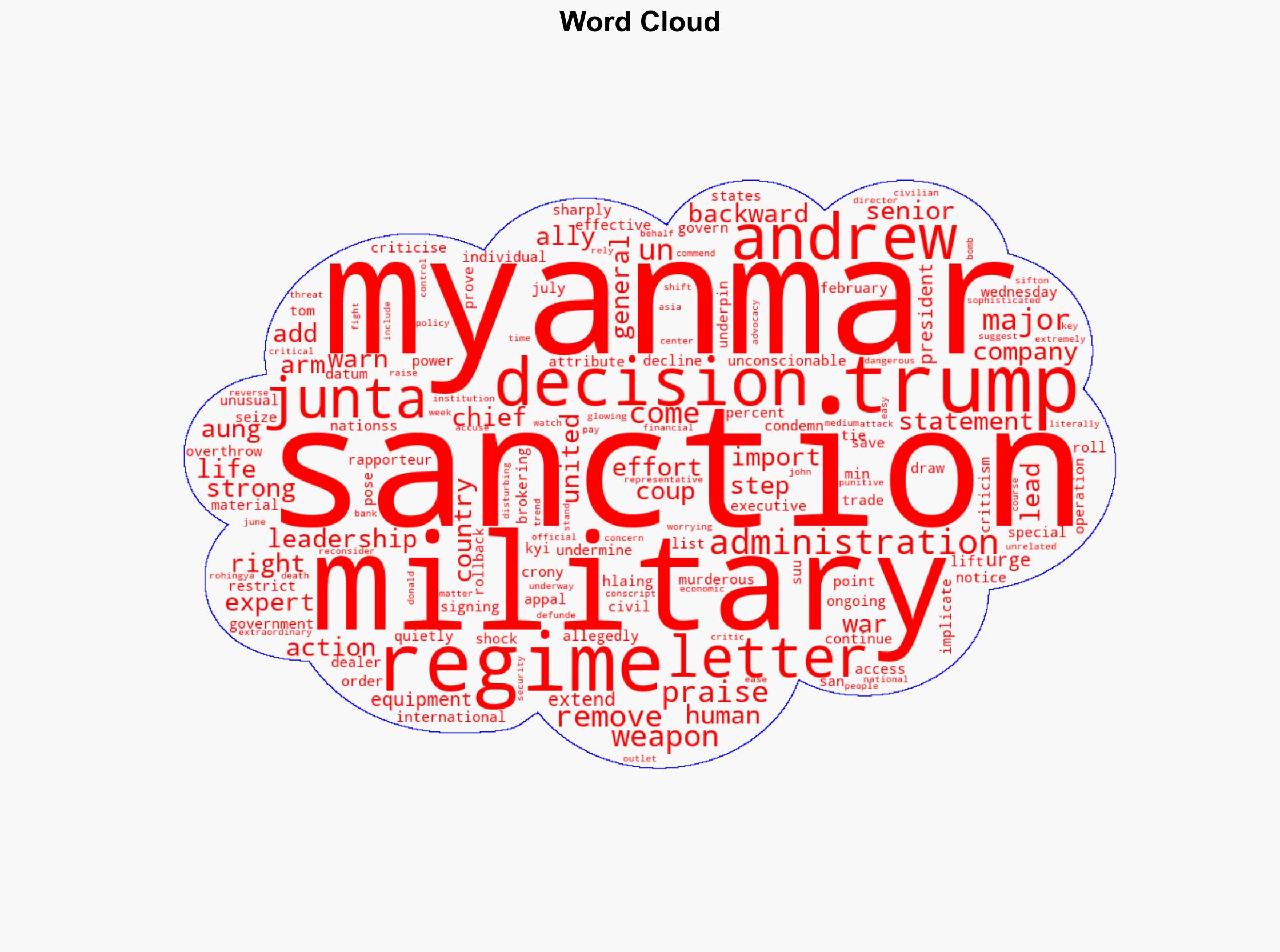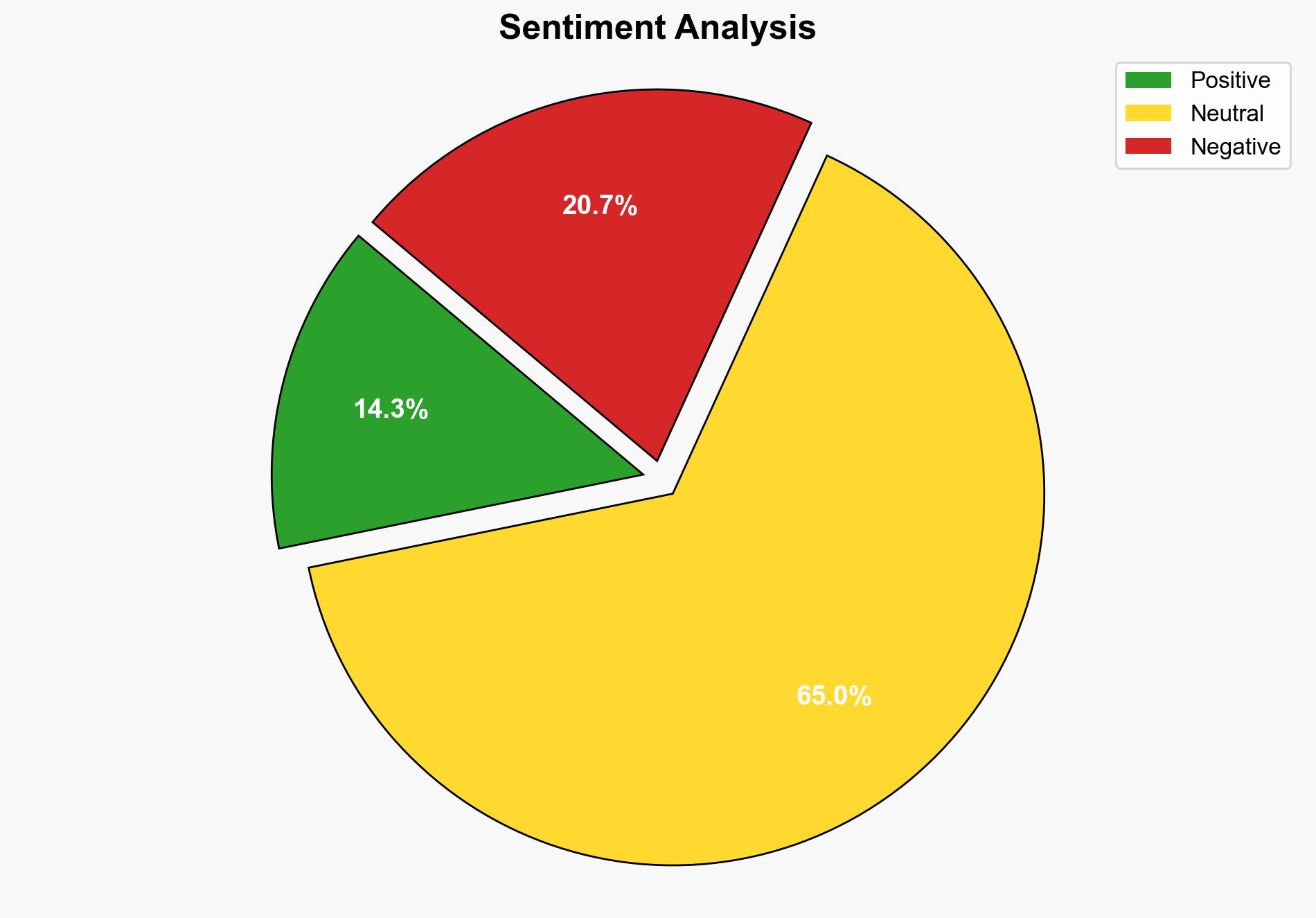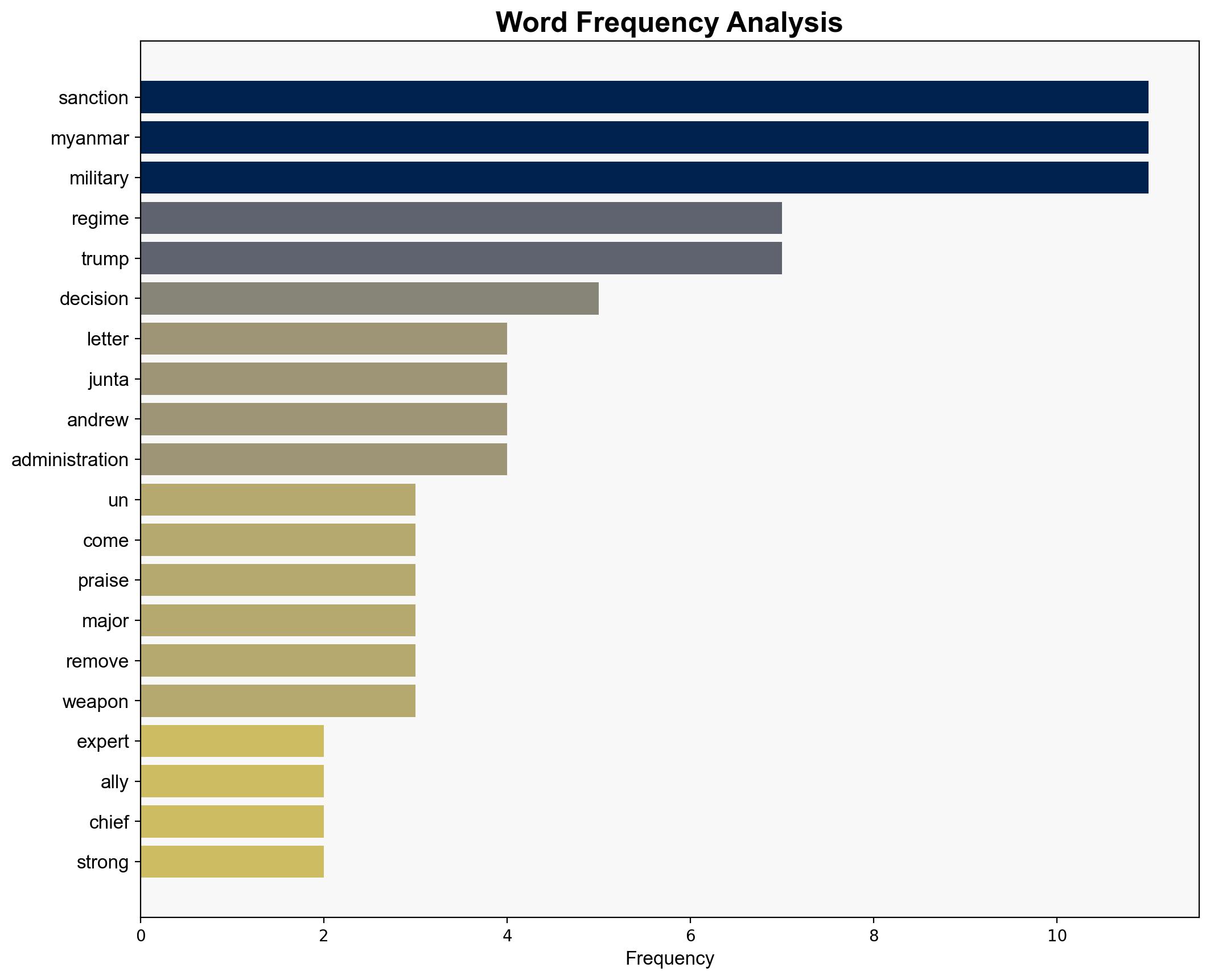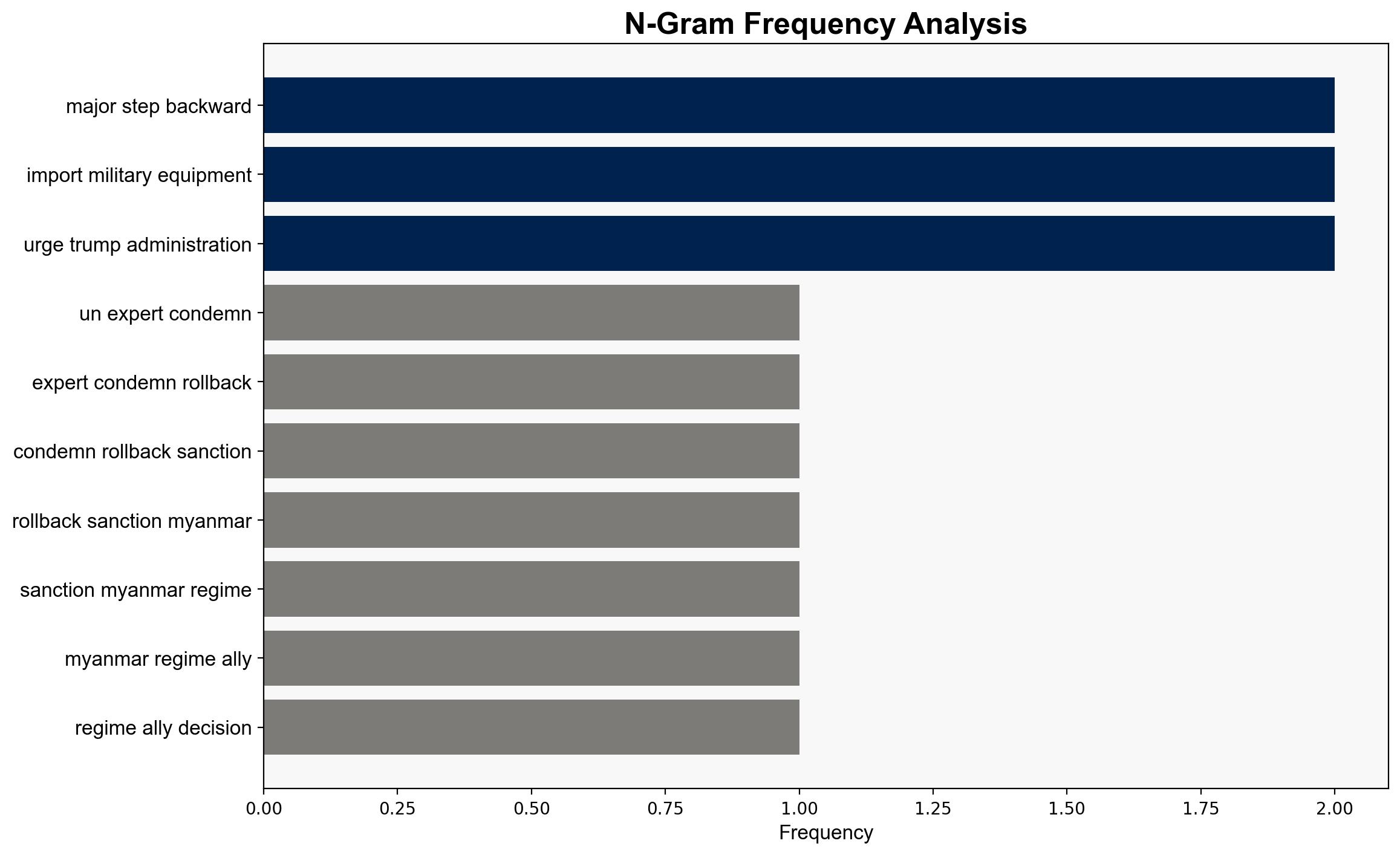UN expert condemns US rollback of sanctions on Myanmar regime allies – Al Jazeera English
Published on: 2025-07-30
Intelligence Report: UN expert condemns US rollback of sanctions on Myanmar regime allies – Al Jazeera English
1. BLUF (Bottom Line Up Front)
The rollback of sanctions on Myanmar regime allies by the US has sparked significant criticism and raises concerns about potential shifts in US foreign policy. The most supported hypothesis suggests this decision may be strategically motivated to realign US-Myanmar relations, potentially at the expense of human rights considerations. Confidence in this hypothesis is moderate due to limited transparency in decision-making processes. It is recommended that the US reassess the implications of this policy shift, considering both geopolitical and human rights impacts.
2. Competing Hypotheses
Hypothesis 1: The US rollback of sanctions is a strategic move to improve diplomatic relations with Myanmar, possibly to counterbalance Chinese influence in the region.
Hypothesis 2: The rollback is primarily influenced by internal political dynamics within the US, possibly linked to personal or economic interests of key decision-makers, rather than a coherent foreign policy strategy.
Using Analysis of Competing Hypotheses (ACH), Hypothesis 1 is better supported by the context of regional geopolitics and historical US foreign policy patterns. Hypothesis 2 lacks direct evidence but cannot be entirely dismissed due to potential undisclosed motivations.
3. Key Assumptions and Red Flags
Assumptions for Hypothesis 1 include the belief that US foreign policy is primarily driven by strategic geopolitical interests. For Hypothesis 2, it assumes significant influence of personal interests over policy decisions. Red flags include the lack of transparency in the decision-making process and the timing of the rollback coinciding with praise from Myanmar’s military chief, which may indicate undisclosed agreements or understandings.
4. Implications and Strategic Risks
The rollback could embolden the Myanmar military regime, potentially leading to increased human rights violations. It may also signal to other authoritarian regimes that strategic alignment with the US can mitigate punitive measures. This decision risks undermining international efforts to pressure Myanmar towards democratic reforms and could strain US relations with allies prioritizing human rights.
5. Recommendations and Outlook
- Reevaluate the decision to rollback sanctions with a focus on long-term geopolitical and human rights impacts.
- Engage with international partners to develop a coordinated approach towards Myanmar that balances strategic interests with human rights advocacy.
- Best case scenario: Improved US-Myanmar relations without compromising human rights. Worst case: Strengthened Myanmar military regime with increased human rights abuses. Most likely: Short-term diplomatic gains with potential long-term reputational damage.
6. Key Individuals and Entities
– Tom Andrews (UN Special Rapporteur on Human Rights in Myanmar)
– Min Aung Hlaing (Myanmar Military Chief)
– Donald Trump (Former US President)
7. Thematic Tags
national security threats, geopolitical strategy, human rights, US foreign policy




